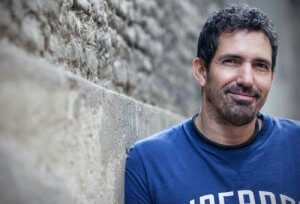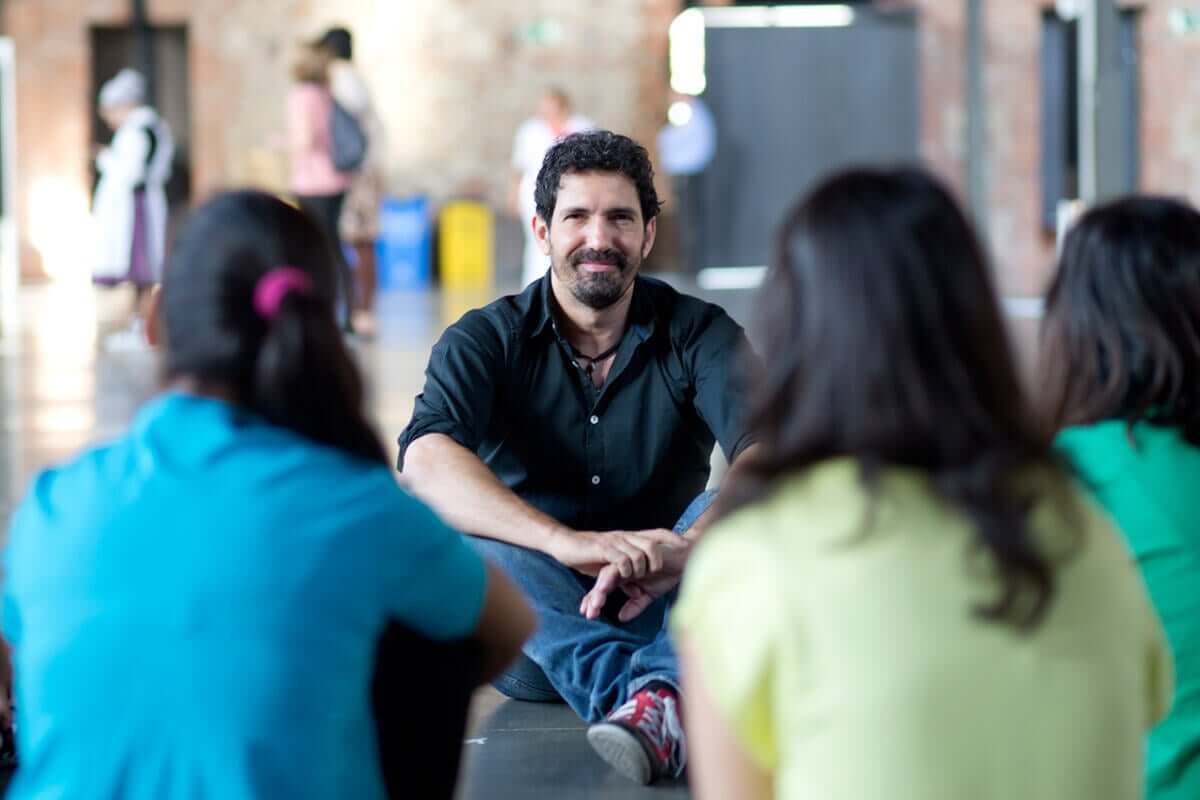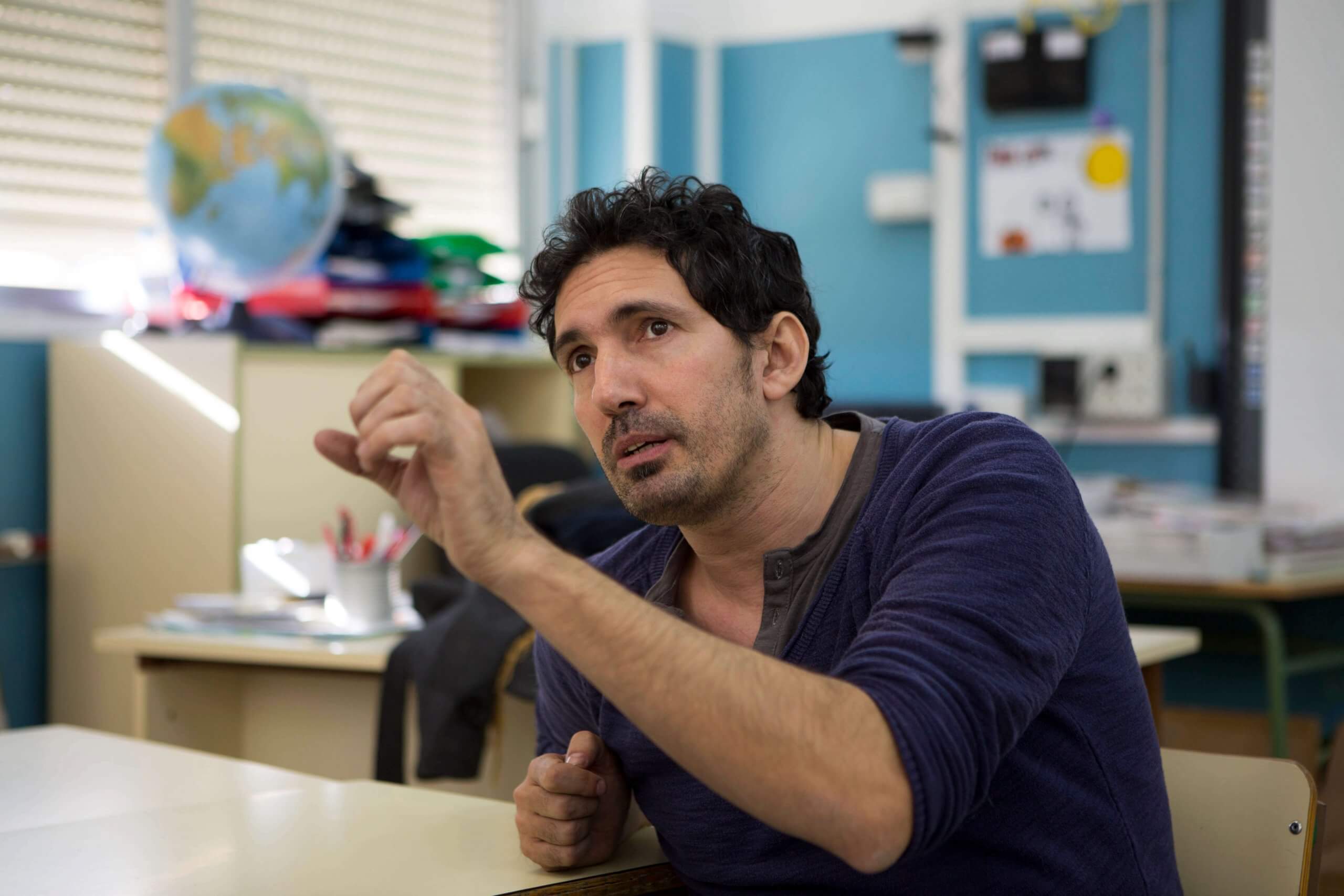Cesar Bona: Global Teacher Prize Finalist

According to John Dewey, renowned American pedagogue, and psychologist, education is not preparation for life; education is life itself. So, something we should undoubtedly keep in mind is that school is more than a social stage for teaching children. It’s also the motor that can make this world a better place.
In order for this to occur, there needs to be committed educators, and Cesar Bona is one of these examples. Someone who, from his career as a teacher, helps us to reflect on the importance of educating with the heart, motivation, and an interest in offering our society well-rounded individuals – young people whose competencies extend far being academics.
Our educational system has a social responsibility. It must be committed to offering the world girls and boys that are able to get along and solve problems… children that are empathetic, emotionally intelligent, proactive, etc.
Now, you can only achieve something like this with an open mind and the conviction that we can’t educate our children the same way we were educated. Times have changed, needs are different, and current social demands are very high…
“Each day that we go to school, we should do so with enthusiasm and live out the gift of practicing our profession with passion.”
– Cesar Bona –
“Education is a social asset, an area in which we all need to grow together” – Cesar Bona
Cesar Bona is a teacher in Zaragoza, Spain. In 2014, he became a finalist for the Global Teacher Prize, known as the Nobel Prize for teachers. What’s more, he’s written several books on education, including The New Education, Schools That Change the World, The Amazing World of Bernardo, and The Excitement of Learning (all published in Spanish).
If there’s anything that defines this educator, considered the best teacher in Spain, it’s his work methodology. He encourages active participation, effort, empathy, respect, and communication…
His method goes far beyond textbooks and transcends academics. Cesar Bona makes children active participants in their learning and helps them feel excited about acquiring new knowledge.
As a teacher, he understands that education is a social asset, an area where we’re all responsible. Fathers, mothers, teachers, social agents… Each one of us has a responsibility towards children. And that is to transmit enthusiasm for learning.
We talked about this with Cesar Bona in the following interview.

What do you think about the current educational system?
Everything seems impersonal, and no one takes responsibility for this. But generalizing distances us from the individual.
It’s true that the system and administrations need to improve. There are very interesting experiences that we should share, as education is a social asset, an area in which we all need to grow together.
What’s the purpose of education, outside of pure academics?
Education comprises the tools that we have to relate to ourselves, to others, and to the environment around us.
Do you think education should be more practical? Should we orient it towards future career opportunities?
Relationships are the basis of education. The purpose of education isn’t creating people that are employable, but rather, people that are well-rounded. Yes, jobs are important, but that would be a tremendous mistake. In fact, businesses look for people that know how to work as a team and how to solve problems.
What can be done to improve education as far as policy goes?
If you want to reach an educational agreement, you need to listen to families, teachers, children, and teens. The participation of each party is key in order to connect them all. We need dialogue between families and teachers… Together, we need to bring out the best in children.
What’s more, every child wants to feel loved, listened to, and useful – just like adults. So, before we think about the leaders of the future, let’s think about the people we want in the present.
What’s the responsibility of political parties?
Their responsibility involves activating the inexistent dialogue between them. If they represent us, then it needs to be in the way that we deserve as a society. What’s more, education can never be a secondary matter in politics. Sometimes, the bubbles that they live in distance them from reality.
Is there too much career orientation going on at universities?
We need to place much more value on vocational training. We shouldn’t vilify these other possibilities, which are dignified and useful. There are people out there with three degrees and no job, and people with vocational training that are working. Feeling fulfilled is fundamental because we’ll always have time to learn and study for pleasure.
Tell us about the role of teachers in children’s education. How can we maximize the education system to benefit teachers and students?
What’s best is to apply the dialogue we talked about before. We set an example for them with our actions and our words. Besides transmitting knowledge, we need to open the doors for them to explore what they have inside.
Do you think anyone can be a teacher? Or is it an ability you’re born with?
Being a teach isn’t easy. When you choose this career, you need to possess certain key qualities. For example, curiosity, a desire to always learn, social commitment, commitment to nature… You need to be a very respectful person.
What’s the key to a good education?
There are many factors. It’s important to remember that few things make children happier than their families and teachers working together.

Your methods when it comes to teaching classes are revolutionary. What do you think about textbooks and homework?
I don’t think it’s extraordinary. Many teachers can do it. Textbooks and homework can be interesting tools, but they shouldn’t be the guide on which we base each movement in the classroom. We need to look around us. Technology is useful, and we can’t forget about it, but it’s not the only way.
We tend to dichotomize everything. Should we, or should we not? It depends on who it’s for, when, and how. Kids need time to rest, just like we do, and to have fun during their childhood. And it’s fundamental that we make them want to come back to school the next day.
Emotional education is a very popular topic today. What do you think about it?
There are people out there who say it’s a fad, but it exists and it’s part of being human… of being a rational being. It seems like we base our decisions solely on reason, but they also have to do with our emotions.
Can you talk to us about your experience as a professor?
Right now I’m on a leave of absence, and it’s a gift to have the possibility to know hundreds of people. I’ve been a teacher for 16 or 17 years and it makes you see life in a different light.
In my last book The Excitement of Learning (La emoción de aprender), I narrate my experiences with different people I’ve met along the way. You can learn a lot from the people you meet, from other cultures, with different religions, and this changes things quite a bit.
According to John Dewey, renowned American pedagogue, and psychologist, education is not preparation for life; education is life itself. So, something we should undoubtedly keep in mind is that school is more than a social stage for teaching children. It’s also the motor that can make this world a better place.
In order for this to occur, there needs to be committed educators, and Cesar Bona is one of these examples. Someone who, from his career as a teacher, helps us to reflect on the importance of educating with the heart, motivation, and an interest in offering our society well-rounded individuals – young people whose competencies extend far being academics.
Our educational system has a social responsibility. It must be committed to offering the world girls and boys that are able to get along and solve problems… children that are empathetic, emotionally intelligent, proactive, etc.
Now, you can only achieve something like this with an open mind and the conviction that we can’t educate our children the same way we were educated. Times have changed, needs are different, and current social demands are very high…
“Each day that we go to school, we should do so with enthusiasm and live out the gift of practicing our profession with passion.”
– Cesar Bona –
“Education is a social asset, an area in which we all need to grow together” – Cesar Bona
Cesar Bona is a teacher in Zaragoza, Spain. In 2014, he became a finalist for the Global Teacher Prize, known as the Nobel Prize for teachers. What’s more, he’s written several books on education, including The New Education, Schools That Change the World, The Amazing World of Bernardo, and The Excitement of Learning (all published in Spanish).
If there’s anything that defines this educator, considered the best teacher in Spain, it’s his work methodology. He encourages active participation, effort, empathy, respect, and communication…
His method goes far beyond textbooks and transcends academics. Cesar Bona makes children active participants in their learning and helps them feel excited about acquiring new knowledge.
As a teacher, he understands that education is a social asset, an area where we’re all responsible. Fathers, mothers, teachers, social agents… Each one of us has a responsibility towards children. And that is to transmit enthusiasm for learning.
We talked about this with Cesar Bona in the following interview.

What do you think about the current educational system?
Everything seems impersonal, and no one takes responsibility for this. But generalizing distances us from the individual.
It’s true that the system and administrations need to improve. There are very interesting experiences that we should share, as education is a social asset, an area in which we all need to grow together.
What’s the purpose of education, outside of pure academics?
Education comprises the tools that we have to relate to ourselves, to others, and to the environment around us.
Do you think education should be more practical? Should we orient it towards future career opportunities?
Relationships are the basis of education. The purpose of education isn’t creating people that are employable, but rather, people that are well-rounded. Yes, jobs are important, but that would be a tremendous mistake. In fact, businesses look for people that know how to work as a team and how to solve problems.
What can be done to improve education as far as policy goes?
If you want to reach an educational agreement, you need to listen to families, teachers, children, and teens. The participation of each party is key in order to connect them all. We need dialogue between families and teachers… Together, we need to bring out the best in children.
What’s more, every child wants to feel loved, listened to, and useful – just like adults. So, before we think about the leaders of the future, let’s think about the people we want in the present.
What’s the responsibility of political parties?
Their responsibility involves activating the inexistent dialogue between them. If they represent us, then it needs to be in the way that we deserve as a society. What’s more, education can never be a secondary matter in politics. Sometimes, the bubbles that they live in distance them from reality.
Is there too much career orientation going on at universities?
We need to place much more value on vocational training. We shouldn’t vilify these other possibilities, which are dignified and useful. There are people out there with three degrees and no job, and people with vocational training that are working. Feeling fulfilled is fundamental because we’ll always have time to learn and study for pleasure.
Tell us about the role of teachers in children’s education. How can we maximize the education system to benefit teachers and students?
What’s best is to apply the dialogue we talked about before. We set an example for them with our actions and our words. Besides transmitting knowledge, we need to open the doors for them to explore what they have inside.
Do you think anyone can be a teacher? Or is it an ability you’re born with?
Being a teach isn’t easy. When you choose this career, you need to possess certain key qualities. For example, curiosity, a desire to always learn, social commitment, commitment to nature… You need to be a very respectful person.
What’s the key to a good education?
There are many factors. It’s important to remember that few things make children happier than their families and teachers working together.

Your methods when it comes to teaching classes are revolutionary. What do you think about textbooks and homework?
I don’t think it’s extraordinary. Many teachers can do it. Textbooks and homework can be interesting tools, but they shouldn’t be the guide on which we base each movement in the classroom. We need to look around us. Technology is useful, and we can’t forget about it, but it’s not the only way.
We tend to dichotomize everything. Should we, or should we not? It depends on who it’s for, when, and how. Kids need time to rest, just like we do, and to have fun during their childhood. And it’s fundamental that we make them want to come back to school the next day.
Emotional education is a very popular topic today. What do you think about it?
There are people out there who say it’s a fad, but it exists and it’s part of being human… of being a rational being. It seems like we base our decisions solely on reason, but they also have to do with our emotions.
Can you talk to us about your experience as a professor?
Right now I’m on a leave of absence, and it’s a gift to have the possibility to know hundreds of people. I’ve been a teacher for 16 or 17 years and it makes you see life in a different light.
In my last book The Excitement of Learning (La emoción de aprender), I narrate my experiences with different people I’ve met along the way. You can learn a lot from the people you meet, from other cultures, with different religions, and this changes things quite a bit.
This text is provided for informational purposes only and does not replace consultation with a professional. If in doubt, consult your specialist.








